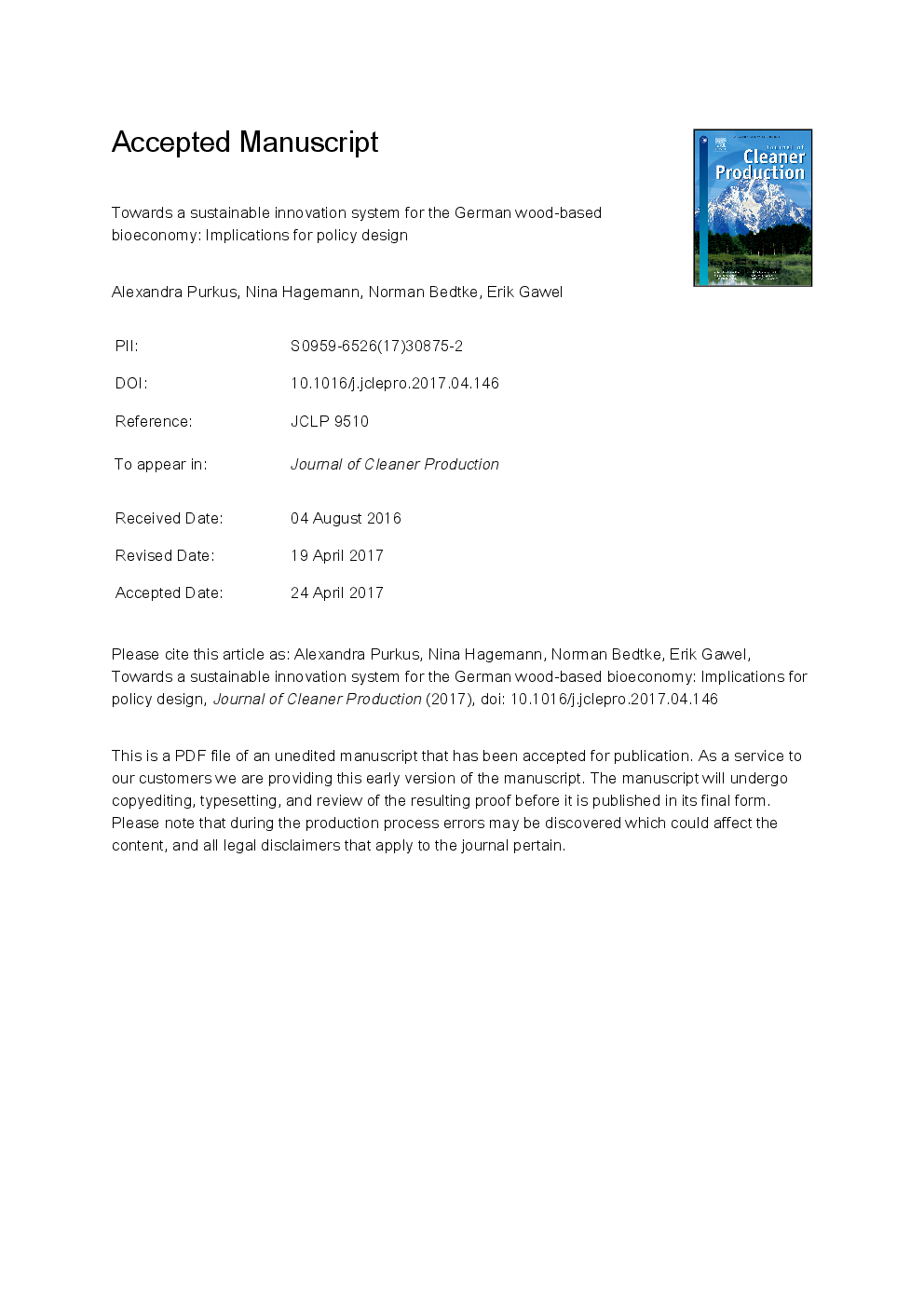ترجمه فارسی عنوان مقاله
به سوی یک سیستم نوآوری پایدار برای اقتصاد زیستی مبتنی بر چوب در آلمان: پیامدهای طراحی سیاست
عنوان انگلیسی
Towards a sustainable innovation system for the German wood-based bioeconomy: Implications for policy design
| کد مقاله | سال انتشار | تعداد صفحات مقاله انگلیسی |
|---|---|---|
| 149579 | 2018 | 51 صفحه PDF |
منبع

Publisher : Elsevier - Science Direct (الزویر - ساینس دایرکت)
Journal : Journal of Cleaner Production, Volume 172, 20 January 2018, Pages 3955-3968
ترجمه کلمات کلیدی
اقتصاد بیرونی، آلمان، سیستم های نوآوری گذار مسیر، سیاست، چوب،
کلمات کلیدی انگلیسی
Bioeconomy; Germany; Innovation systems; Path transition; Policy; Wood;

